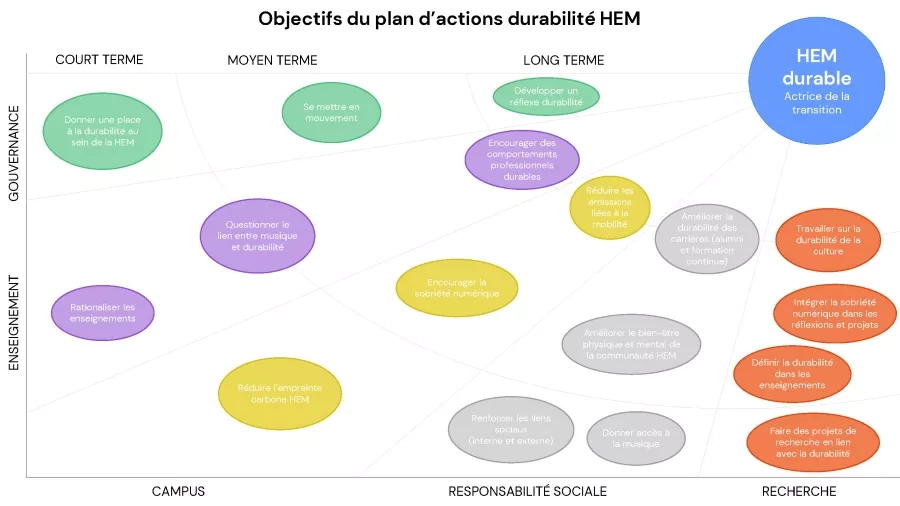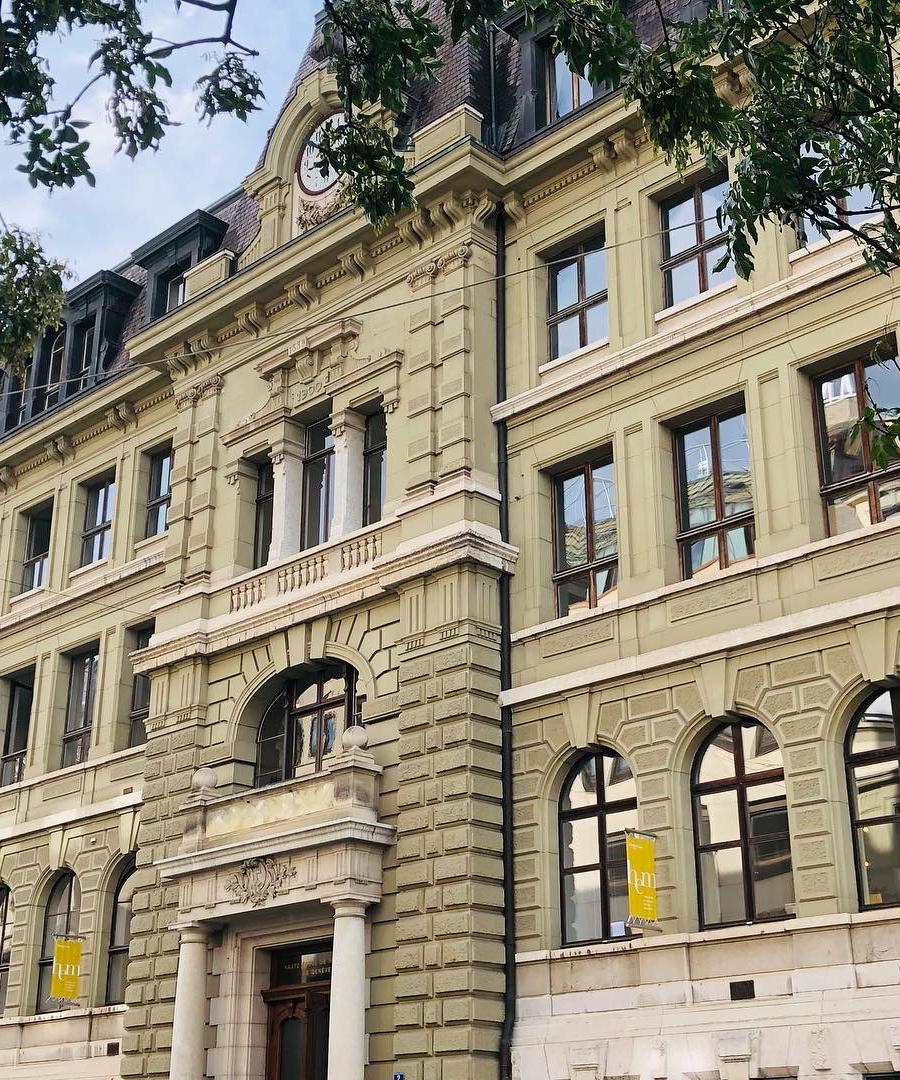- Studies
- Disciplines
- Research
- Events
- The school
Sustainability
The HEM is leading a number of projects aimed at promoting the transition to a sustainable society.
The HEM and sustainability
The HEM appointed a sustainability facilitator in 2022 and has been taking targeted action for several years.
Since January 2025, the HEM has adopted a sustainability action plan. A working group made up of representatives from the entire HEM community was set up in 2024 and has been active ever since.
Click here for the objectives of the action plan in pdf format

Vision for a High School of Music as a player in transition
At the Haute École de Musique de Genève, we are convinced that art is a powerful vehicle for tackling sustainability issues and accompanying, or even initiating, significant change. Our ambition is to make the HEM a committed player in the transition to a fairer, more sustainable future, by integrating the four dimensions of sustainability across all our activities and teaching.
This ambition is expressed through the four pillars of sustainability: cultural, social, environmental and economic.
By integrating these four axes of sustainability, we are committed to training conscious and responsible musicians, ready to inspire and lead change towards a better world through their artistic practice. Musicians have a role to play in the transition, mobilising their artistic sensibilities through projects that bring communities together, allow emotions to be shared and/or spark dialogue around major societal issues and can inspire collective action. Our aim is to question and develop practices based on these perspectives for reflection and action.
Engagement
Some projects completed in 2024-2025 :
- Creation of a sustainability strategy
- Career forum on the theme of sustainability
- Workshop: ‘Classical music and sustainability: what can we do?’
- Workshop on planned obsolescence
- Replacement of disposable glasses with washable HEM glasses
- Films on sustainability screened at the film club
- Rollout of the CEDRE tool - Consideration, Equity, Dialogue and Respect
- Renewal of the hearing prevention initiative ‘Oui à l'ouïe’
- Installation of nap modules
Some projects completed in 2023-2024 :
- Bike repairs by unicycle in front of the Dufour building (HES-SO GE project)
- Clothes and music swap with Adehem
- Installation of water fountains
- Hearing prevention
The HES-SO has a number of projects aimed at promoting the transition to a sustainable society: https: //www.hes-so.ch/la-hes-so/durabilite
The HES-SO Geneva has also adopted a 2025-2028 sustainability strategy.
Contact information
Florence Dutoit (Neuchâtel's site)




